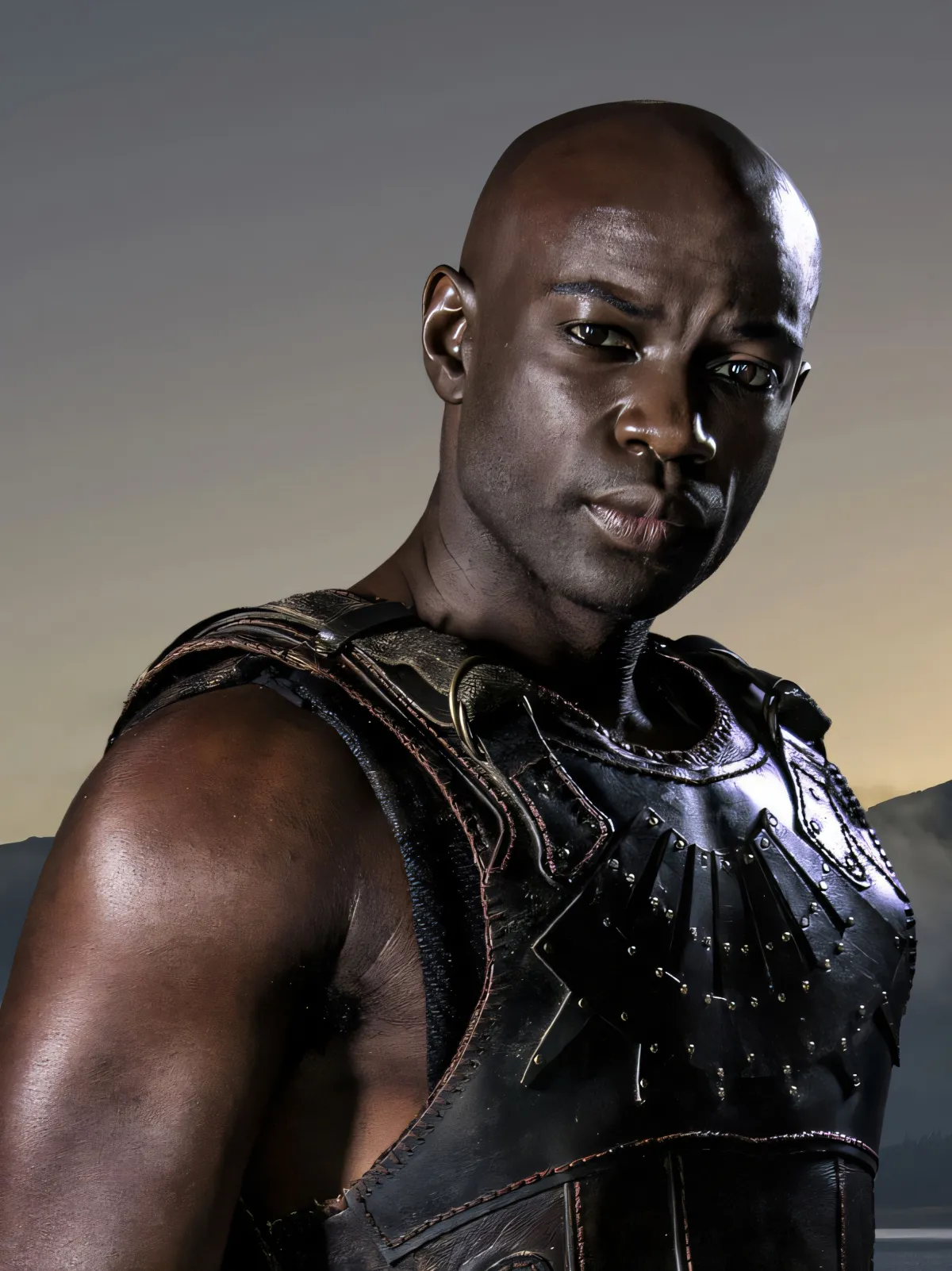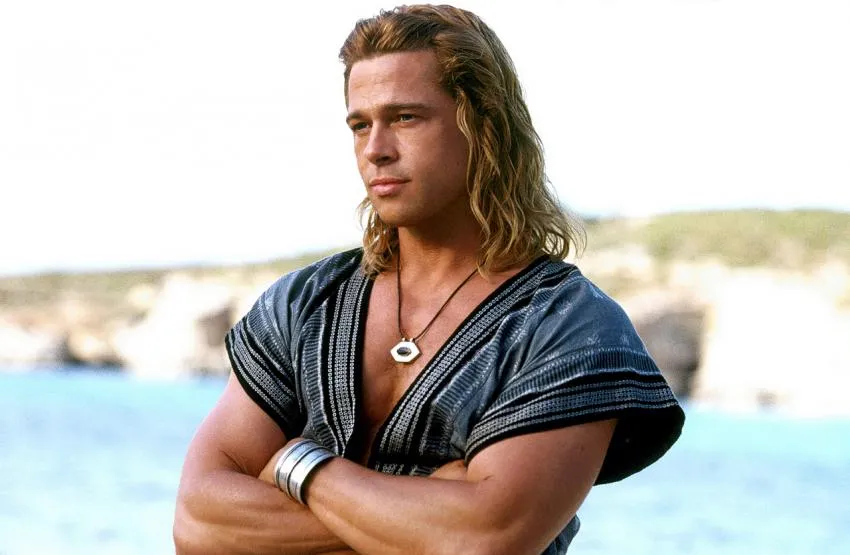Diversity: The Achilles's Heel Of Hollywood
My friend is Greek. She is quite proud of her Greek heritage, and she often likes to remind me, whenever we discuss politics, culture, history, and philosophy, where the Western world received its values. She’s a historian herself, and her love for political discourse, reciting of Greek epics, and admiration of Greek artwork all make her…well, very Greek.
So then, imagine her shock when both of us decided to watch David Farr’s Troy: Fall of City (2018) on Netflix and she saw Zeus and Achilles being portrayed by black men.

Needlessly to say, there was a lot of eye-rolling and heavy sighs.
British-Nigerian actor Hakeem Kae-Kazim plays Zeus, the King of Gods, while British-Ghanaian actor David Gyasi plays Achilles. While both of these actors are superb in their roles, my friend’s anger was directed at a simple fact: the distortion of history.
The Academy of Motion Pictures Arts and Sciences announced new standards to what would constitute a Best Film. These standards were set in place to help promote diversity, inclusion, and greater representation of the world. While admirable, many seemed to forget that whenever someone—or something—attempts to define “diversity” for others, this definition automatically becomes ethnocentric in nature. The reason is simple: not everyone in the world shares the same understanding, concept, or vision of what it means to be “diverse.”
The flaw that the Academy doesn’t realize is that having mere presence of physical, non-white bodies does not eliminate racism, and it does not properly promote diversity. Diversity comes in various forms that include ideology, values, and narratives; having bodies that are “persons of color” or “ethnic minorities” is just that: a mere presence. True diversity would be to showcase different narratives from all around the world whilst being preserved in their truest form as much as possible—not distilled and whitewashed in the name of “diversity.” That is, filmmakers should strive to promote stories that show vast multitudes of different thinking, ideologies, and customs instead of just whitewashing/blackwashing other narratives. After all, wouldn’t it be more “representative” and more “diverse” to show stories from other cultures than just to remake them in an image of Hollywood clichés? Also, let’s not forget about modern Greeks of today: surely someone who is Greek had to stop, frown, and then say to themselves: “Wait a minute. That’s not right. Zeus was never black. That’s not part of my heritage!”
Thus, my friend did not necessarily care about the fact that there were black actors on screen; she very much is in support of diversity in all forms. What she cared about most was the distortion of a particular history, one that is rich with culture, as such a tactic is the opposite of celebrating diversity: it is, in fact, destruction of diversity, and in case, the destruction of the Iliad.
We should ask ourselves: does Hollywood have the ethical authority to announce which group deserves more “representation” than others? Does it have the right to decide, based on skin color, which cultural narrative is more significant? We also must remember that what might be “diverse” and “right” for some does not mean it is “diverse” and “right” for others.
After all: Brad Pitt did a splendid job in Troy (2004) as Achilles. As a Greek, however, he did a very poor job.

Opinions and Perspectives
Sometimes I think Hollywood forgets that diversity includes respecting existing cultures too.
This whole debate reflects larger questions about cultural authenticity in media.
The article makes valid points about the superficiality of Hollywood's diversity efforts.
I'd love to see more original stories from different cultures instead of just adaptations.
I think both actors did amazing jobs, but I understand the larger concerns being raised.
What matters more historical accuracy or artistic interpretation? It's not an easy answer.
The article really challenges the current approach to diversity in entertainment.
Perhaps we need better guidelines for adapting cultural and historical narratives.
I've noticed similar issues with adaptations of other ancient civilizations' stories.
The industry needs to understand that diversity isn't just about checking boxes.
Makes me think about how many other cultural stories are being misrepresented.
We should be having more conversations like this about representation in media.
The Netflix adaptation had its merits, but I understand the concerns about cultural authenticity.
This makes me wonder about how other cultures feel when their stories are adapted by Hollywood.
Looking at ancient Greek art, even they depicted their gods differently across regions and time periods.
The impact on cultural heritage seems to be overlooked in these casting decisions.
Why not create new mythological stories with diverse characters instead of changing existing ones?
The article's critique of surface-level diversity in Hollywood is refreshingly honest.
As a history teacher, I struggle with balancing inclusive representation and historical accuracy.
I never considered how changing historical figures might actually work against true diversity.
The point about Hollywood's ethical authority to decide representation is spot on.
This discussion reminds me why we need more diverse voices behind the camera, not just in front of it.
I believe both historical accuracy and diverse representation matter. We shouldn't have to choose.
The argument about modern Greeks' perspective really made me think about cultural ownership.
I appreciate how this piece acknowledges the complexity of the issue rather than taking a simple stance.
We should be creating new mythologies and stories rather than just reimagining old ones.
The article makes me question who gets to decide what constitutes appropriate representation.
Brad Pitt as Achilles wasn't historically accurate either, but he sure looked good doing it!
Maybe we should focus more on funding filmmakers from different cultures to tell their own stories.
I've studied Greek mythology extensively and these adaptations often miss the cultural context completely.
The distinction between physical diversity and narrative diversity is crucial. We need both.
This reminds me of similar controversies with other historical adaptations. It's a complex issue without easy answers.
The solution seems simple to me tell new stories from different cultures instead of just recasting old ones.
I wonder what ancient Greeks would think about all our modern interpretations of their myths.
The Academy's new standards seem well-intentioned but maybe miss the mark on truly promoting diverse storytelling.
Interesting how we're comfortable with British actors playing Greeks but draw lines at other casting choices.
The author's Greek friend's perspective adds an important voice to this discussion that we don't often hear.
I work in film and can confirm that the industry's approach to diversity often feels superficial rather than meaningful.
The article raises valid concerns, but let's not forget these are mythological stories, not historical documents.
I found the point about ethnocentric definitions of diversity particularly insightful. We often view diversity through a western lens.
What bothers me is that Hollywood thinks changing actors' ethnicities somehow equals meaningful representation.
The Brad Pitt comment at the end made me laugh because it's so true. Why weren't people as upset about that casting?
I appreciate how this article challenges our understanding of what true diversity means. It's not just about visible representation.
As someone with Mediterranean heritage, I relate to the Greek friend's frustration. It's about preserving cultural authenticity.
We seem to be missing the bigger picture here. Hollywood needs to invest in original stories from diverse cultures rather than just recasting existing ones.
The comparison between Brad Pitt and the recent casting choices really puts things in perspective. Neither was historically accurate, but only one caused controversy.
I actually watched Troy: Fall of City and thought the performances were fantastic, regardless of the actors' backgrounds.
While I agree with some points, let's remember that Greek mythology has been reinterpreted throughout history. These aren't documentaries we're talking about.
The author makes a great point about true diversity being more than just changing actors' ethnicities. We need authentic stories from different cultures.
I understand the concern about historical accuracy, but isn't the goal of art to interpret and reimagine? Shakespeare's plays have been adapted countless times with different cultural contexts.
This really hits home. As someone who studied ancient civilizations, I find it frustrating when historical accuracy is sacrificed for modern social agendas.